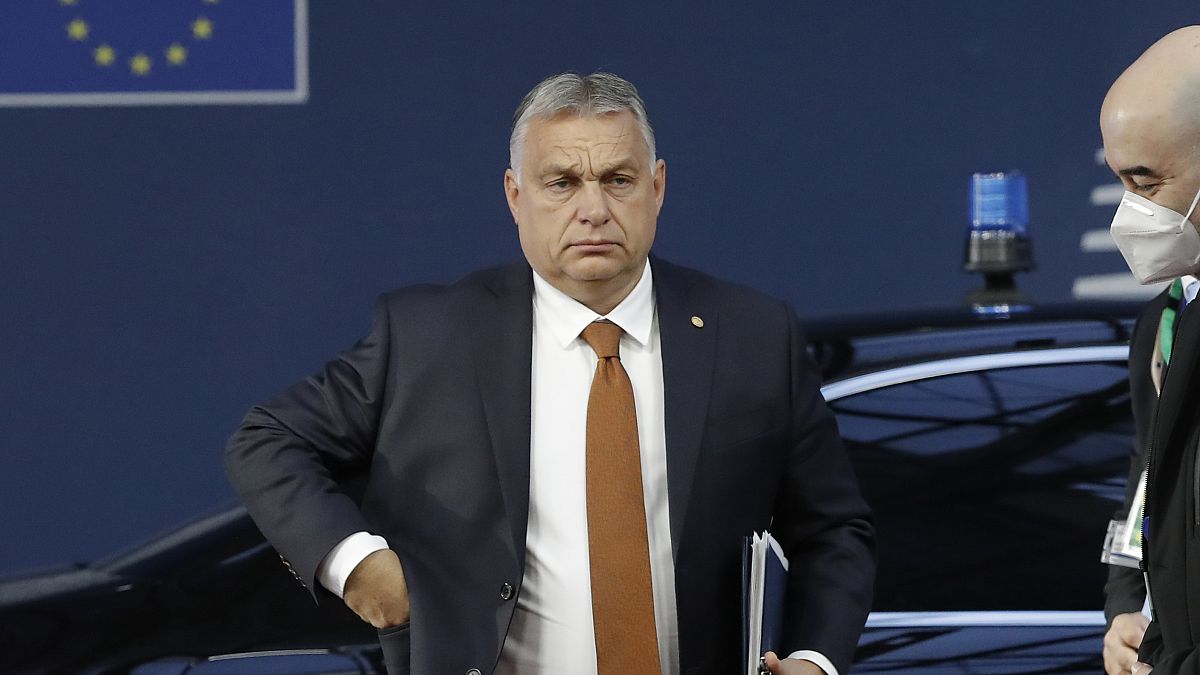As Viktor Orbán bids to stay in power, Brussels will be watching Sunday's election with a close eye.
Hungary's controversial prime minister Viktor Orbán won a landslide election 12 years ago, immediately starting a deep transformation of the country.
During this time, a bitter conflict with the European Union ensued, with Brussels concerned by Orbán's changes to the electoral system, media freedom and attacks on LGBT rights.
According to German socialist MEP Katarina Barley, democratic standards in the central European country have slipped.
"When we look at the past 12 years, rule of law and democracy have deteriorated massively in Hungary and we are now at a point where we have to ask ourselves if the country meets democratic standards at all," Barley told Euronews.
One of the biggest points of contention came in 2015 over migration when Orbán built a border fence and cranked up the anti-migrant rhetoric. OLAF, the EU's anti-fraud agency, also raised the alarm over the misuse of the bloc's funds.
After Orbán won a third term in 2018, Brussels decided to go all out in its fight with him. The European Parliament activated a sanctions regime called Article 7, and the EU also decided to link budget payouts to the fight against corruption.
For Doru Frantescu, director of VoteWatch Europe, the 2019 EU budget negotiations were not easy for the Hungarian prime minister.
"These were very difficult discussions, very difficult negotiations. Mr Orbán managed to get some sort of accommodating position, but certainly not to the extent he would have hoped for, or what he claimed at home," Frantescu told Euronews.
Now, a six-party opposition coalition is challenging Orbán's grip on power, with their main message being that Hungary belongs in the West and in the EU.
But according to Frantescu, even if they win Sunday's election, the honeymoon period with Brussels could well be over soon.
"If the opposition wins in Hungary, the government will be made up of many parties," Frantescu said. "And as we know, governments made up of many parties that join forces only to get rid of the bigger enemy... it's not a stable government in the long term."
The VoteWarch Europe director added that if Orbán stays in power, his base would be weakened, likely forcing him to be more appeasing towards his European partners in Brussels and generally less disruptive.
Euronews reached out to Orbán's Fidesz party, but they did not want to comment.
